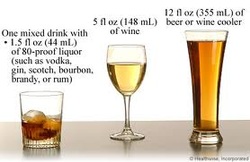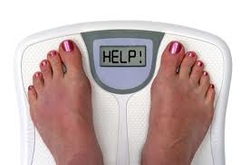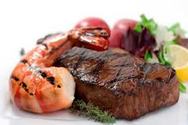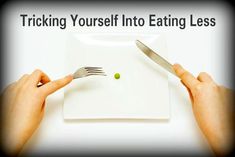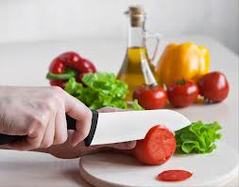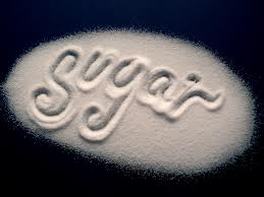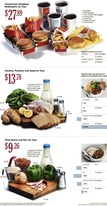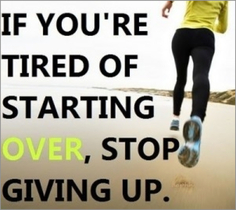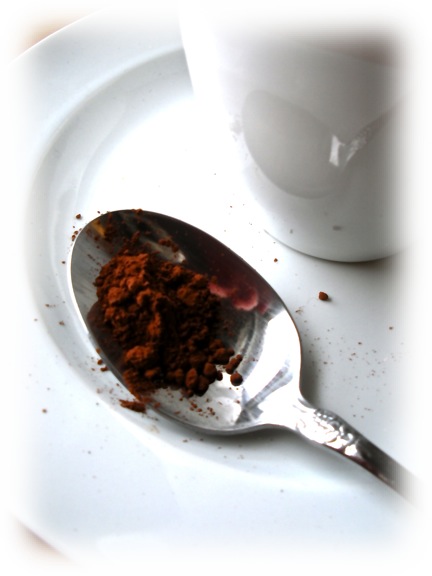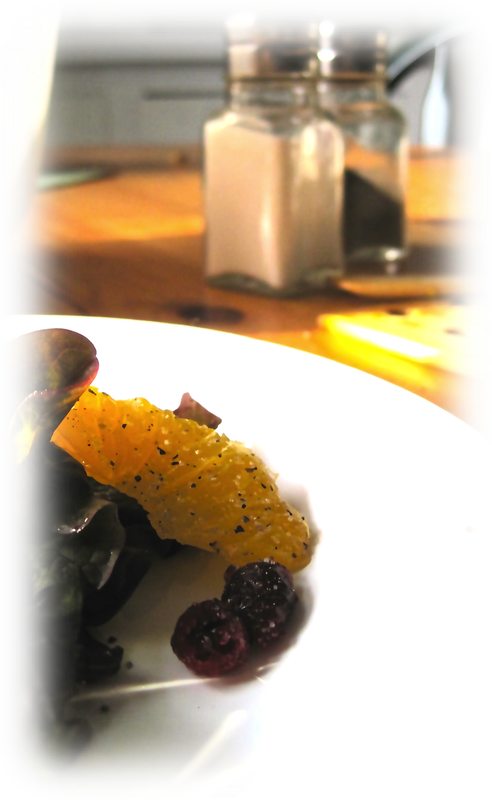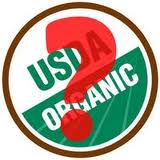
Over the summer David's 86 year old grandmother told me the funniest organic food story. Her friend was a farmer who grew produce for a vegetable stand in the summer. One day they were discussing the latest food fad of organic produce, which the farmer felt had been extremely good for business. "I mark half my tomatoes as organic and sell them for twice as much. I keep the others as non-organic and sell them at regular price. All my tomatoes are gone and I'm making more money than ever!" David's grandma thought it was pretty funny that people were willing to pay twice as much for tomatoes just because they were called organic. The question remains, is it worth it?
What does organic mean?
According to AND organic means "meat, poultry, eggs and dairy products [that] come from animals that are given no antibiotics or growth hormones" and "organic plant foods [that] are produced without using most conventional pesticides, fertilizers made with synthetic ingredients or sewage sludge, bioengineering or ionizing radiation." In addition "a government-approved certifier must inspect the farm to ensure these standards" are upheld and in addition "there are USDA standards for organic handling and processing." AND also clarifies that "organic foods aren't necessary grown without pesticides or fertilizers, but instead with those types found naturally in the environment, with substances on an approved list, or with insects that are natural predators."
What are the benefits?
The main benefits are that it lowers your exposure to pesticides and resistant strains of bacteria. According to an article written by David D Holzman for the Environmental Health Perspectives "organic produce had a 30% lower risk of pesticide contamination than conventional produce." However, he goes on to explain that an organic diet "has not been proven to offer a clinically relevant nutritional advantage over a conventional diet."
Why is it so expensive?
What it boils down to is that farming organic isn't as effective as conventional methods. According to John Kearney in his article, Food Consumption Trends Drivers, the"higher price for organic foods (especially meat) can be attributed to reduced crop yields, higher cost of organic feed, lower animal stocking rates and higher labour requirements." It takes more time, money, and energy to grow organic and in the end you get less yield. To compensate farmers have to charge more for organic.
Is it worth it?
That all depends on why you are doing it. If it is important for you to decrease your exposure to pesticides by 30% then yes. If you think it is better for the environment, go for it. If you are doing it because it is more nutritious you aren't getting what you paid for. I personally don't "buy organic." When I can I do go for locally grown produce, but I rarely pay for organic. It just isn't worth it to me. If it is worth it to you, great, just realize organic does not mean more nutritious.
There is one last point I need to make about organic produce to clarify why I get a little worked up when people say organic is so much healthier and encourage people to buy organic.
First, have you been to Whole Foods? I was greatly disappointed by that store. I expected to find great unique foods to add some fun variety to my diet. Instead I was bombarded with bogus marketing campaigns trying to make you feel good about getting ripped off by their prices. I was disgusted. Same brand of almond milk as Winco, but its $1.50 more. Don't even get me started about how all the produce was over $7.00/lb. No wonder people think they can't afford to eat healthy! I feel organic is often used as a marketing hype to take advantage of people who are trying to do the right thing. It makes me mad! Especially because my goal is to show people that everyone can afford to be healthy which is hard to believe if you think you have to shop at Whole Foods to be healthy.
Second is something called orthorexia. Basically orthorexia is when people are so health conscious they become unhealthy. No, really, healthy can be taken too far. Check out the link. It has been my experience that often the people most "passionate" about organic often suffer from orthorexia. You know who I'm talking about, the ones who get angry or are almost in tears when the can't eat their healthy foods? The ones who are so smug or nazi about health food you can't stand to be around them? I'm not saying all "health nuts" have orthorexia, I just feel organic is often used as a crutch for them and that is not healthy.
I do get frustrated by this organic hype. When I walked out of Whole Foods for the first time I called my husband and vented to him for 30 minutes. There are certain prominent fitness instructors that I really think take nutrition too far and it drives me crazy when people try to eat like them because it is "healthy." This stuff gets my blood boiling faster than anything else, but I want you to understand why. It isn't about being right or wrong, though many people think that.
I got into nutrition when girls at my junior high started to have eating disorders. It got me thinking about the relationship people have with food. So often eating healthy is a major stressor in peoples lives because of weight loss, organic food, eating disorders, or just worrying about if they are providing the best nutrition for their family. Hype and food fads bother me because it uses people, confuses people, and takes their money without giving them any real benefit. People who are just trying to do the best they know how with the knowledge they have. I started Natural Nutrition because I wanted to help people get out of the confusion and find real answers. I do it because it is something I'm passionate about. So if I ever roll my eyes at Whole Foods or the latest fad diet please don't be offended. Its not you, its the food fad.
What does organic mean?
According to AND organic means "meat, poultry, eggs and dairy products [that] come from animals that are given no antibiotics or growth hormones" and "organic plant foods [that] are produced without using most conventional pesticides, fertilizers made with synthetic ingredients or sewage sludge, bioengineering or ionizing radiation." In addition "a government-approved certifier must inspect the farm to ensure these standards" are upheld and in addition "there are USDA standards for organic handling and processing." AND also clarifies that "organic foods aren't necessary grown without pesticides or fertilizers, but instead with those types found naturally in the environment, with substances on an approved list, or with insects that are natural predators."
What are the benefits?
The main benefits are that it lowers your exposure to pesticides and resistant strains of bacteria. According to an article written by David D Holzman for the Environmental Health Perspectives "organic produce had a 30% lower risk of pesticide contamination than conventional produce." However, he goes on to explain that an organic diet "has not been proven to offer a clinically relevant nutritional advantage over a conventional diet."
Why is it so expensive?
What it boils down to is that farming organic isn't as effective as conventional methods. According to John Kearney in his article, Food Consumption Trends Drivers, the"higher price for organic foods (especially meat) can be attributed to reduced crop yields, higher cost of organic feed, lower animal stocking rates and higher labour requirements." It takes more time, money, and energy to grow organic and in the end you get less yield. To compensate farmers have to charge more for organic.
Is it worth it?
That all depends on why you are doing it. If it is important for you to decrease your exposure to pesticides by 30% then yes. If you think it is better for the environment, go for it. If you are doing it because it is more nutritious you aren't getting what you paid for. I personally don't "buy organic." When I can I do go for locally grown produce, but I rarely pay for organic. It just isn't worth it to me. If it is worth it to you, great, just realize organic does not mean more nutritious.
There is one last point I need to make about organic produce to clarify why I get a little worked up when people say organic is so much healthier and encourage people to buy organic.
First, have you been to Whole Foods? I was greatly disappointed by that store. I expected to find great unique foods to add some fun variety to my diet. Instead I was bombarded with bogus marketing campaigns trying to make you feel good about getting ripped off by their prices. I was disgusted. Same brand of almond milk as Winco, but its $1.50 more. Don't even get me started about how all the produce was over $7.00/lb. No wonder people think they can't afford to eat healthy! I feel organic is often used as a marketing hype to take advantage of people who are trying to do the right thing. It makes me mad! Especially because my goal is to show people that everyone can afford to be healthy which is hard to believe if you think you have to shop at Whole Foods to be healthy.
Second is something called orthorexia. Basically orthorexia is when people are so health conscious they become unhealthy. No, really, healthy can be taken too far. Check out the link. It has been my experience that often the people most "passionate" about organic often suffer from orthorexia. You know who I'm talking about, the ones who get angry or are almost in tears when the can't eat their healthy foods? The ones who are so smug or nazi about health food you can't stand to be around them? I'm not saying all "health nuts" have orthorexia, I just feel organic is often used as a crutch for them and that is not healthy.
I do get frustrated by this organic hype. When I walked out of Whole Foods for the first time I called my husband and vented to him for 30 minutes. There are certain prominent fitness instructors that I really think take nutrition too far and it drives me crazy when people try to eat like them because it is "healthy." This stuff gets my blood boiling faster than anything else, but I want you to understand why. It isn't about being right or wrong, though many people think that.
I got into nutrition when girls at my junior high started to have eating disorders. It got me thinking about the relationship people have with food. So often eating healthy is a major stressor in peoples lives because of weight loss, organic food, eating disorders, or just worrying about if they are providing the best nutrition for their family. Hype and food fads bother me because it uses people, confuses people, and takes their money without giving them any real benefit. People who are just trying to do the best they know how with the knowledge they have. I started Natural Nutrition because I wanted to help people get out of the confusion and find real answers. I do it because it is something I'm passionate about. So if I ever roll my eyes at Whole Foods or the latest fad diet please don't be offended. Its not you, its the food fad.
